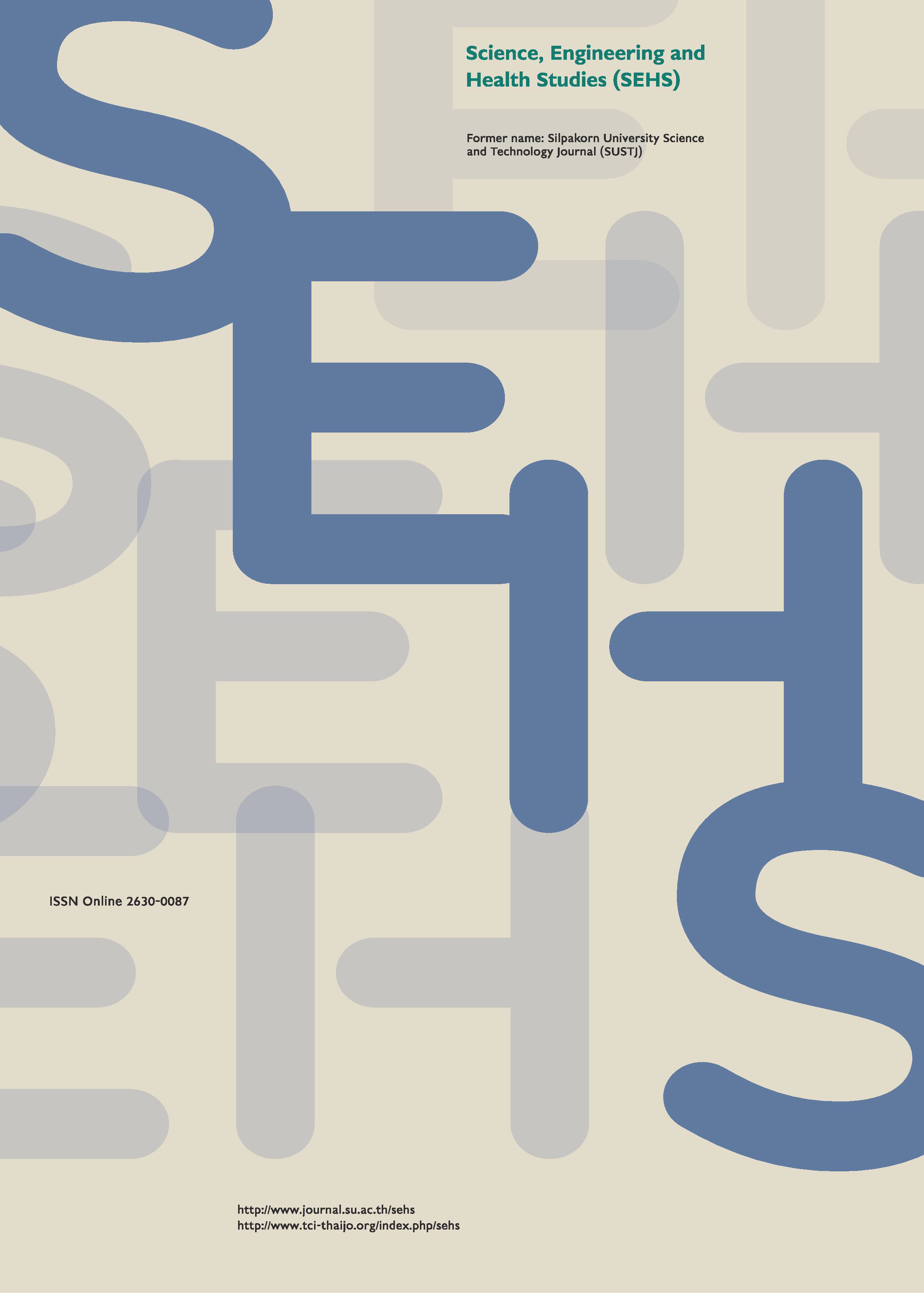Perspectives of pregnancy care in rural areas by pregnant women of Bugis ethnicity
Main Article Content
Abstract
The cultural context in the form of habit patterns determines the viewing perspective of pregnancy care by various Indonesian ethnicities. In addition, the viewpoint of pregnant women in the Bugis ethnicity triggers a care pattern assumed to be culturally appropriate and in harmony with the local community. The aim of this study, therefore, was to explore the perspectives of Bugis ethnic pregnant women in rural areas regarding the care provided during pregnancy. This involved a qualitative approach with ethnographic design, while the obtained research was traced using in-depth interview techniques on five pregnant women, five close families, a shaman and a village midwife. Furthermore, the informants were determined through a snowballing technique, initiated with information collected from midwives. The results were then analyzed and the perspectives were presented using a cultural theme model, comprising the patterned cultural beliefs and habits. These viewpoints were manifested in the form of early and late pregnancy care. In the early care, all participants continued to obtain care with the shaman, and followed the procession termed makkatenni sanro. While in the late phase, all pregnant women usually hold an event called maccera' wettang when entering the third trimester. In addition, the shaman and the family played closely related roles, as observed in the aspect of regulating food and taboo behavior during pregnancy. Therefore, cultural communication approach is required to serve as a behavioral referral in relation to pregnant women in rural areas such as shamans and families. This tactic is needed to improve individual perspectives on care provided, and is also considered to be in line with the health context.
Downloads
Article Details

This work is licensed under a Creative Commons Attribution-NonCommercial-NoDerivatives 4.0 International License.
References
Alwi, Q. (2007). Cultural themes behind the behavior of indigenous mothers in maternity care and childbirth in Mimika regency. Buletin Penelitian Kesehatan, 35(3), 137-147. [in Indonesian]
Brata, I. (2016). Local cultural wisdom adhesives national identity. Jurnal Bakti Saraswati, 5(1), 9-16. [in Indonesian]
Chahyanto, B. A., and Wulansari, A. (2018). Nutritional aspects and the symbolic meaning of food taboos for pregnant women in Indonesia. Jurnal Ekologi Kesehatan, 17(1), 52-63. [in Indonesian]
Devi, S. R., Haryanto, S., Hakimci, M., Prabandari, Y. S., and Mardikanto, T. (2011). Pregnancy care in the perspective of Madurese culture in Tambak Village and Rapalaok Village, Omben Sub-District. Jurnal Promosi Kesehatan, 1(1), 50-62. [in Indonesian]
Dumatubun, A. E. (2002). Culture, health of Papuans in health anthropology perspective. Antropologi Papua, 1(1), 1-20. [in Indonesian]
Fitroh, N. (2014). Tingkeban ritual in the perspective of Islamic Aqeedah. Master’s thesis. Universitas Islam Negeri Walisongo, Indonesia. [in Indonesian]
Handayani, S. (2010). Socio-cultural aspects of pregnancy, childbirth and postpartum in Indonesia. Infokes, 1(2), 21-27. [in Indonesian]
Hill, A. M., Nunnery, D. L., Ammerman, A., and Dharod, J. M. (2020). Racial/ethnic differences in diet quality and eating habits among WIC pregnant women: implications for policy and practice. American Journal of Health Promotion, 34(2), 169-176.
Indian Ethnicity and Background. (2011). [Online URL: chrome-extension://efaidnbmnnnibpcajpcglclefindmkaj/https://www.health.qld.gov.au/__data/assets/pdf_file/0023/159611/malaysian-preg-prof.pdf] accessed on March 18, 2020.
Ipa, M., Prasetyo, D. A., and Kasnodihardjo, K. (2016). Cultural practices of nursing in pregnancy, childbirth and postpartum on the inner Baduy Ethnic. Jurnal Kesehatan Reproduksi, 7(1), 26-36. [in Indonesian]
Juariah. (2018). Cultural beliefs and Practices during pregnancy of the Karangsari village community, Garut regency. Sosiohumaniora, 20(2), 162-167. [in Indonesian]
Kartika, V., Agustiya, R. I., Kusnali, A., Humaniora, P., Litbangkes, B., and Kesehatan, K. (2019). Culture of pregnancy and childbirth in the Baduy community, in Lebak regency, 2018. Buletin Penelitian Sistem Kesehatan, 22(3), 192-199. [in Indonesian]
Kasnodihardjo, K., and Kristiana, L. (2013). Cultural practices of pregnancy care in Gadingsari village, Yogyakarta. Jurnal Kesehatan Reproduksi, 4(3), 113-123. [in Indonesian]
Kencanawati, D. A. P. M. (2016). Pregnancy in Timorese cultural perspective ATONI. Info Kesehatan, 14(12), 1195-1206. [in Indonesian]
Ketut, N., and Mubasyiroh, R. (2019). The role of culture in the utilization of maternal health services. Kementerian Kesehatan RI, 11, 7. [in Indonesian]
Maulida, R. (2016). Mumee's customs and the trust of the Acehnese people. Master’s thesis. Ar-Raniry State Islamic University Banda Aceh, Indonesia. [in Indonesian]
Murniasih, N. P., Masfiah, S., and Hariyadi, B. (2016). Pregnancy care behavior in Javanese cultural perspective in Kaliori village, Kalibagor sub-district. Jurnal Kesmas Indonesia, 8(1), 56-66. [in Indonesian]
Pasaribu, R. D., Setia, T. F., and Gultom, L. (2014). Social, cultural and knowledge of pregnant women which is not support a healthy pregnancy. Jurnal Ilmiah PANNMED, 9(1), 72-78. [in Indonesian]
Rofi’i, M. (2013). Javanese women's beliefs about suggested and prohibited behaviors or habits during pregnancy. In Proceedings National Conference of PPNI Central Java, pp. 116-120. Jakarta, Indonesia. [in Indonesian]
Suprabowo, E. (2006). Cultural practices in pregnancy, childbirth and postpartum on the Sanggau Dayak tribe. Kesmas National Public Health Journal, 1(3), 112-121. [in Indonesian]
Suryawati, C. (2007). Socio-cultural factors in pregnancy, childbirth, and postpartum care practices study in Bangsri sub-district, Jepara Regency. Jurnal Promosi Kesehatan Indonesia, 2(1), 21-31. [in Indonesian]
Tinago, C. B., Ingram, L. A., Frongillo, E. A., Blake, C. E., Engelsmann, B., and Simmons, D. (2018). Understanding conceptualizations of pregnancy and planning for pregnancy among adolescent girls and young women in Harare, Zimbabwe. Qualitative Health Research, 28(9), 1509-1519.
Wahyuni, S., Thaha, R. M., and Suriah. (2013). Makassar ethnic pregnancy care concept in Jeneponto regency. Hasanuddin University Repository. [Online URL: https://core.ac.uk/download/pdf/25491058.pdf] accessed on March 18, 2020.


